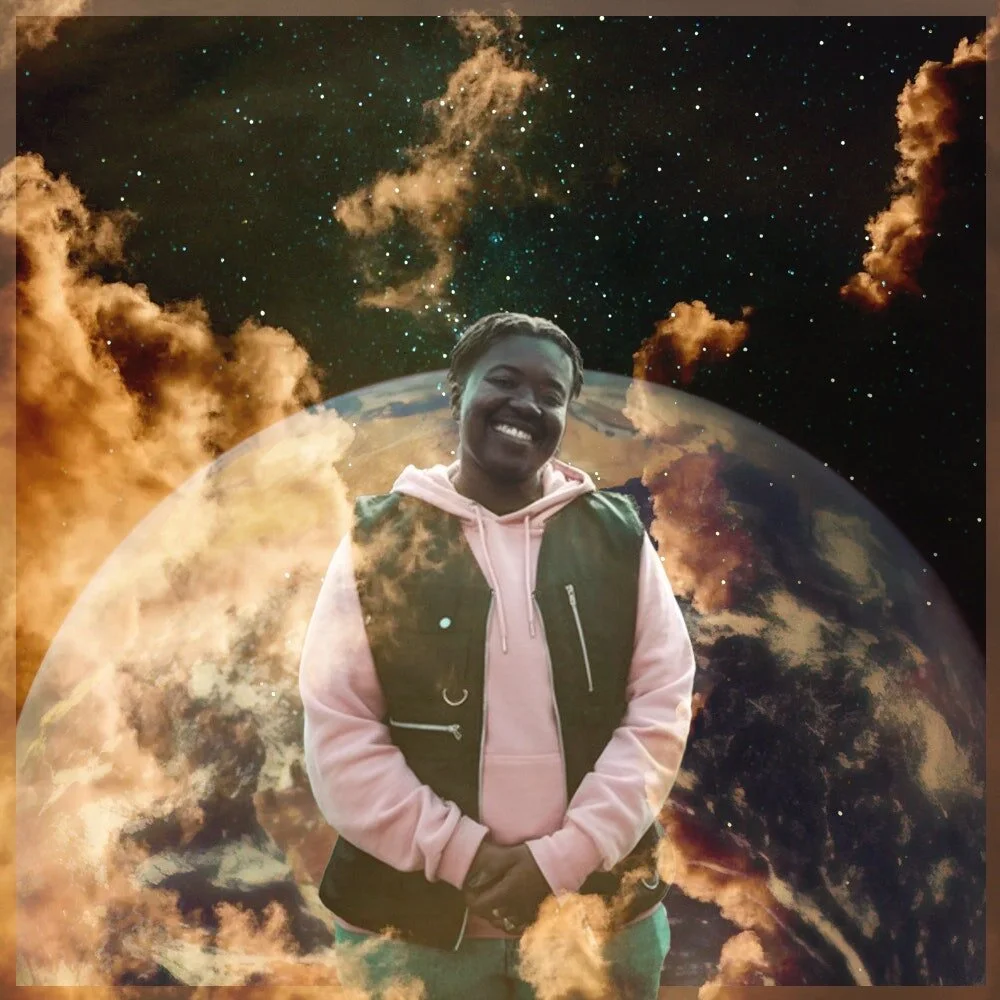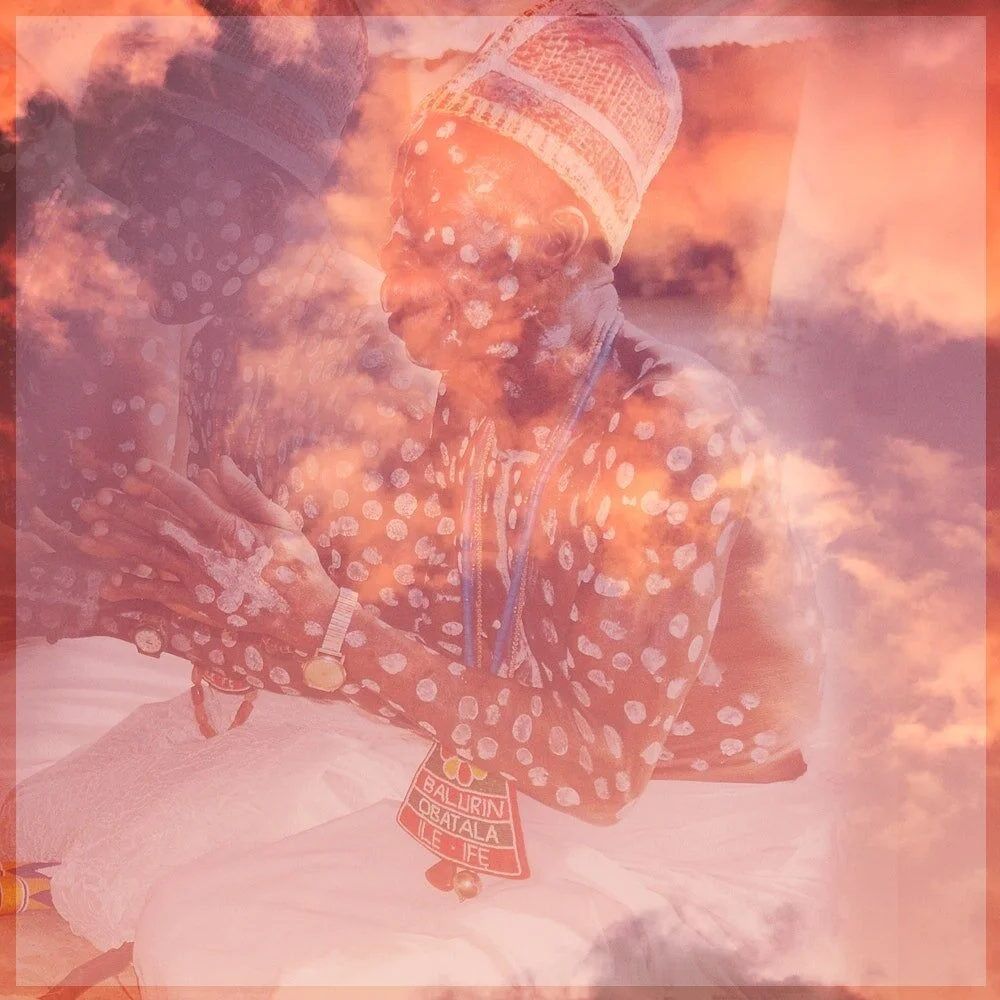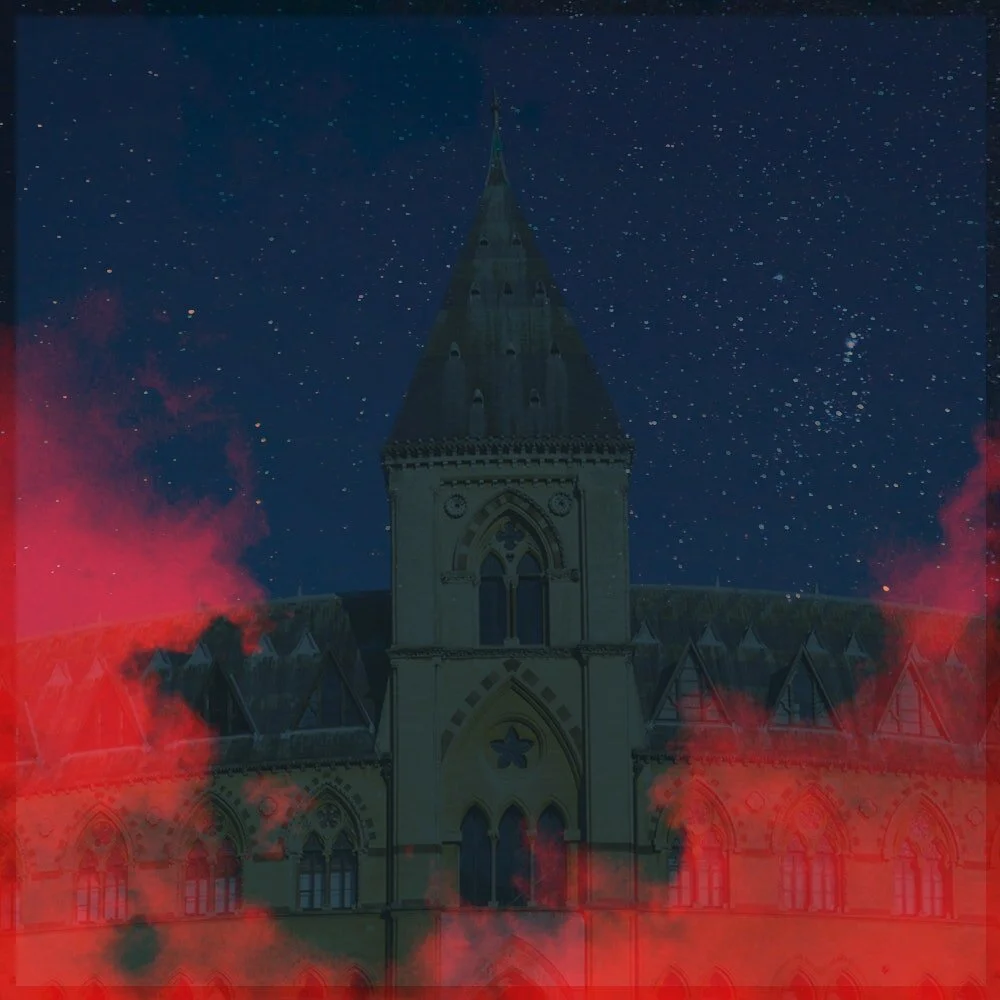The Free Black University is Focusing on Healing Through Education
Make it stand out
The Free Black University came to me as an idea through the whole decolonial movement here in the UK, which very much inspired the work that I’m doing. I spent some time in South Africa as well, doing some decolonial work out there. Essentially, spirituality is something that’s important to the Free Black University, and I started exploring pre-colonial African roots to spiritual and ancestral connection. In the West, there’s that separation between rationality and religion, but prior to colonisation, that split didn’t exist. That means that the way that people thought and produced knowledge would have been entwined with a spiritual understanding of the world. As I got deeper into that spirituality, the Free Black University was a message that I was given, and it’s what I’m bringing into fruition with the guide of pre-colonial orishas and ancestors.
I’ve always cared about community work and social justice. Whilst I was at University, I studied philosophy and politics. Recognising how much erasure there was on the curriculum — and how few people like me were in the room — really made me want to do something to change it. It’s been a progression of working on the Why Is My Curriculum White? campaign and working on the wider decolonial project across the UK and internationally. It’s led me to a place right now where I recognise the inability of institutions to create radical systemic change.
Universities are built on colonisation. The potential for them to change and see any deep transformation is incredibly limited. Rather than spending energy and time campaigning within the institution, as I’ve done for years, I thought that the next stage of the work that I can offer to my community is to do something outside of the institution; and create a space that is built on anti-colonialism, queerness, transness and Blackness.
I’ve always cared about community work and social justice. Whilst I was at University, I studied philosophy and politics. Recognising how much erasure there was on the curriculum — and how few people like me were in the room — really made me want to do something to change it. It’s been a progression of working on the Why Is My Curriculum White? campaign and working on the wider decolonial project across the UK and internationally. It’s led me to a place right now where I recognise the inability of institutions to create radical systemic change.
Universities are built on colonisation. The potential for them to change and see any deep transformation is incredibly limited. Rather than spending energy and time campaigning within the institution, as I’ve done for years, I thought that the next stage of the work that I can offer to my community is to do something outside of the institution; and create a space that is built on anti-colonialism, queerness, transness and Blackness.
___STEADY_PAYWALL___
This conversation about abolition has been going on more in the public realm recently, but prior to that I was very privy to it, recognising that all of the institutions that exist today are built on the pain, colonisation and subjugation of marginalised people. Initially, the conversations about diversity and changing reading lists and so on seemed like possibilities. As I got deeper into understanding the extent to which colonialism is entrenched within these institutions, it only makes sense that abolition needs to be the next stage of the university project. I’m not saying abolish them right now, but in the sense that doing the work within the institution is incredibly exhausting, personally taxing, and gaslighting. To do the work outside of the institution is a creative project. We’re creating something; and we’re going to have to see how it goes. We’re going to have to see the potential for transformation, how anti-colonial the space can be. It’s imagination and creation that guides this process.
The overarching concept of the Free Black University is to support the transformation of collective consciousness. We need a complete transformation of the ways that we think, the ways that we relate to ourselves, each other, the world, the land, the environment, and so on. That requires a production of knowledge that is different to the foundations of how we produce knowledge today. The Free Black University is meant to incubate and hold a space for radical, imaginative, creative, transformative knowledge to be produced in the world. We’re hoping to do that through an open-access lecture series for those who are signed up to engage with knowledge and thinkers; and a podcast that will be open to anybody where we’re just having conversations, dialogue and discourse. This way folks can listen to knowledge being produced in real time.
Healing is also a massive aspect of the work that we do. Black students are going into university and coming out traumatised, and we want to change that. We want to hold sessions of collective healing, using methods with Western roots like mental health support, and drawing on alternative pre-colonial routes towards wellbeing.
It's important to us to utilise crowdsourced fundraising because the Free Black University is for the people, by the people. Even though there’s a number of reasons that crowdsourcing is difficult and painful, I also think there’s something really beautiful in it. It’s a way to get the message out to the people, and it’s a call to action. It’s almost a litmus test as well: do the people want this? How necessary is this within society? Seeing the funds come in just demonstrates how much this is needed.
The whole project is also based on an idea of reparations. We’re going to go to universities and request reparations to build the Free Black University, but reparations aren’t just institutional – they can be individual as well. Allies that see the need for this should be able to offer this project monetary value and help build something that isn’t directly created for them.
When we say we’re a university, people immediately think that we’re looking for degree-awarding powers, but the system has become so marketised. The aim of education now is to get a degree, then get a job, and that isn’t the ethos that I believe in. For me, the key to education should be the transformation of society. Education should be a free and liberating experience; it should transform each of us as people, and it’s so much more than monetary value. I believe that with degree-awarding powers, that ethos could be compromised. A university should be a place where people can come and just learn for the sake of learning.
In building the Free Black University, idealism has been central to my activism. I think that realism will just keep us in the same place. We already live in a society where we’re taught that our imagination needs to be as limited as possible, especially when you’re a marginalised person. This idea of social justice as radical imagination needs to be held, because somebody has to dream, to imagine, to create, otherwise, we’re just going to stay within this system. We’re dying in this system.
With the specificity of the radical Black imagination, when Black people were enslaved and colonised, the idea that slavery or colonisation would ever end was an absolutely radical idea. But in order to survive it, the use of the imagination was critical. The Free Black University has been created in that same vein of this need to radically imagine freedom as the only way that we’ll ever get through where we are right now.
My advice to budding activists, young and old, would be to read Octavia Butler’s Parable of the Sower and Parable of the Talents, which is the sequel to that. Those books were incredibly transformative for me and just showed me that anybody can have an idea that can change the world. I would also tell people to just sit, meditate and imagine a different world where you don’t have to fight anymore, where you don’t have to do all of this equality and diversity work, where you don’t have to suffer. What comes up in that imagination? And how do you build a bridge between today and that radical imagination? That’s where we begin the work.
I’m so hopeful as a person, and a lot of it lies in imagination and possibilities: the things I’ve seen change and the people that I have in my life – the love that exists in my life and in the world. I believe that people have a purpose, and I definitely believe that mine has aligned with knowledge production and radical imagination, especially in the sense of universities. If I wasn’t doing this, I don’t know what I’d be doing. I feel like I’m walking in my purpose and my path. I just pray that it stays that way, and I’m able to do the things in this world that make me feel happy and fulfilled but also are able to serve in the transformation of society.
Melz is an academic and activist. Follow them on Instagram.
Find the Free Black University on Instagram and donate to the fund here.
Art: Aisha Mohamed



